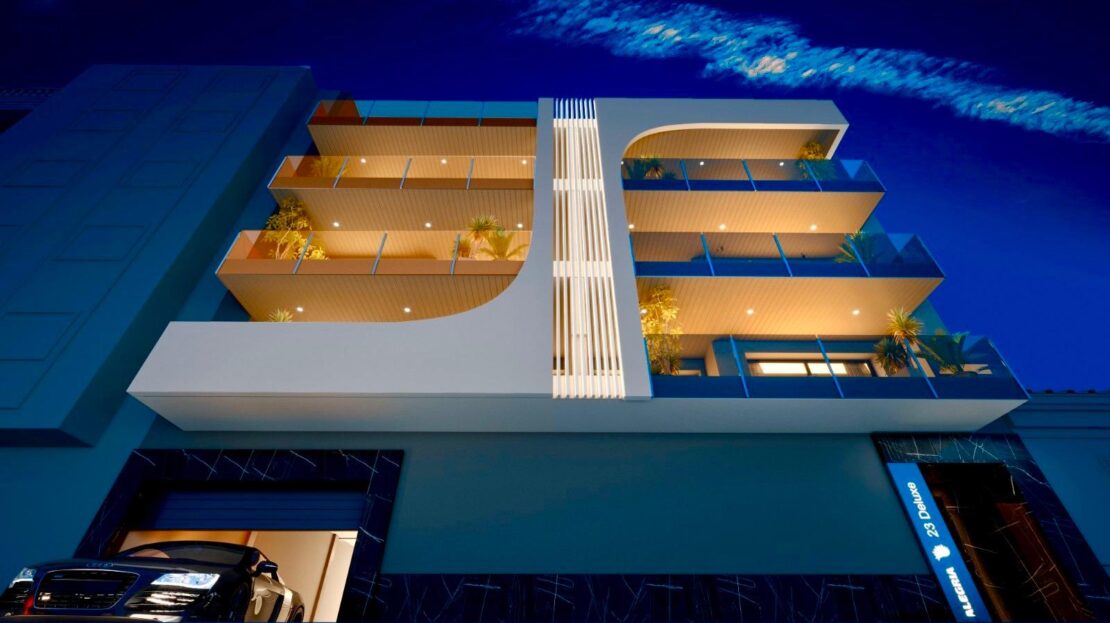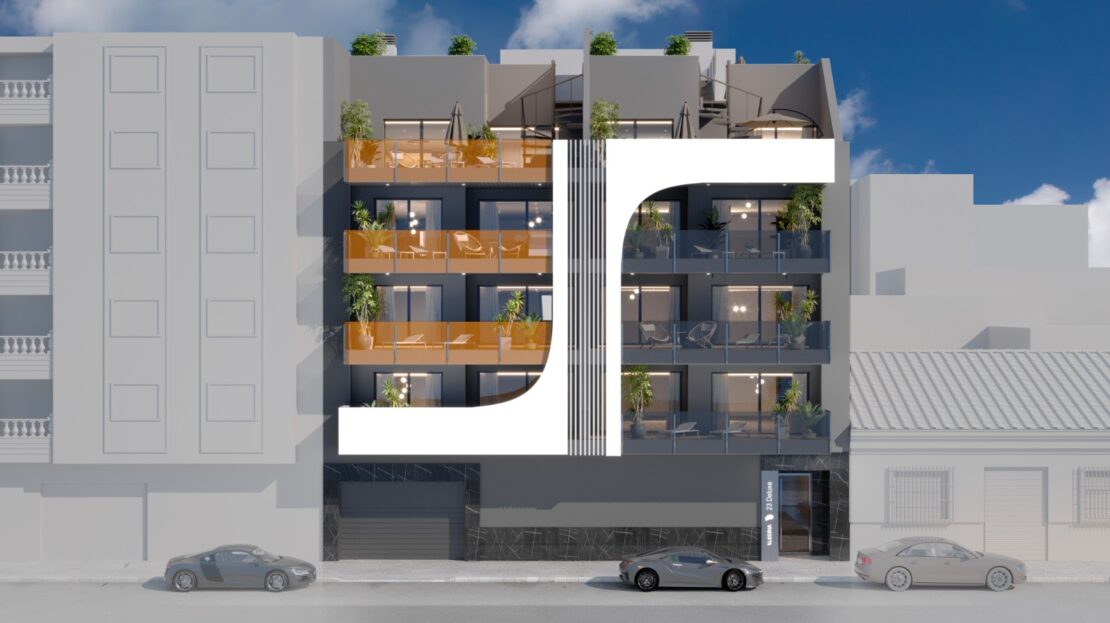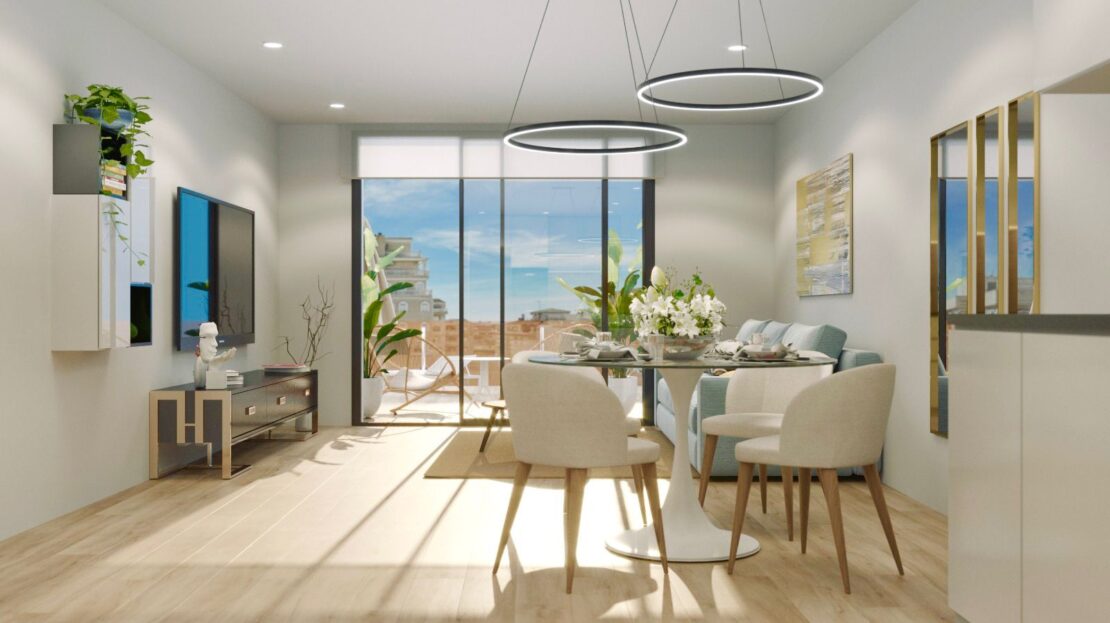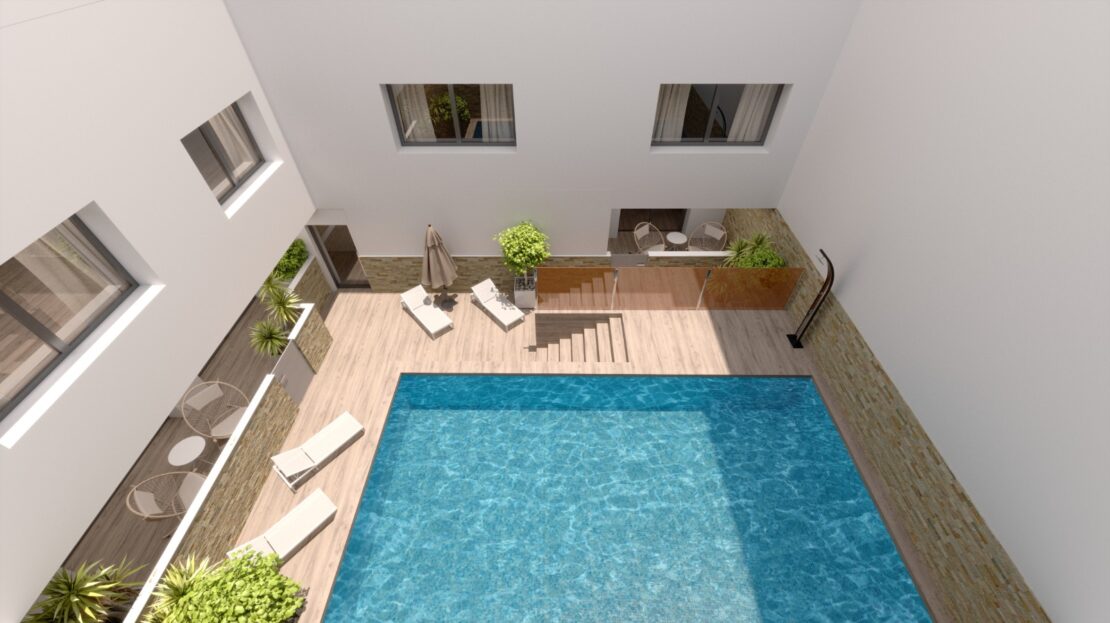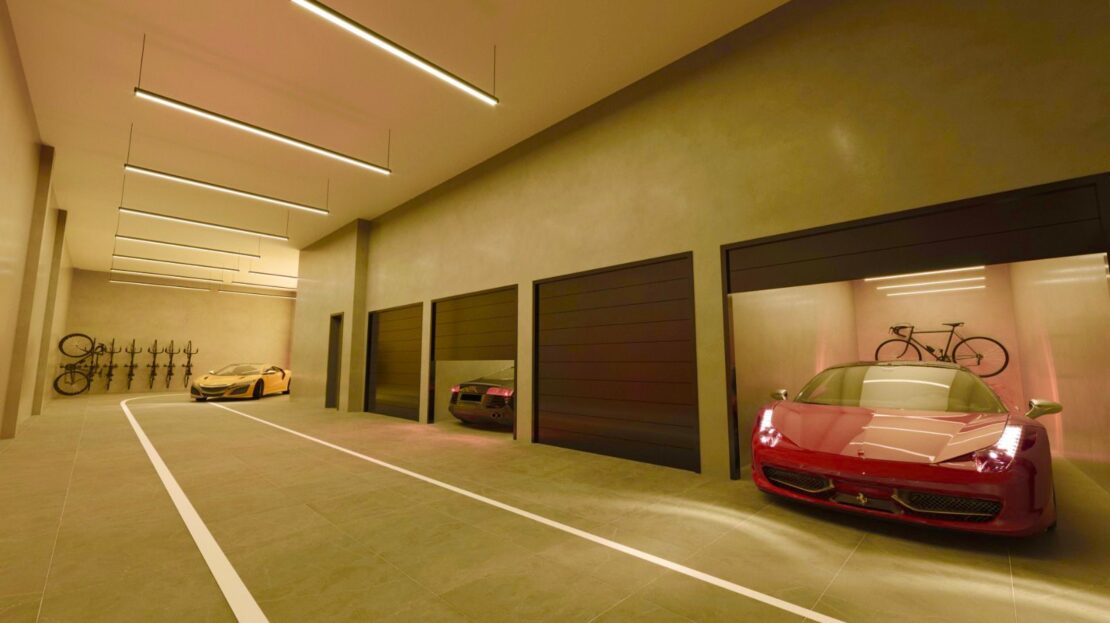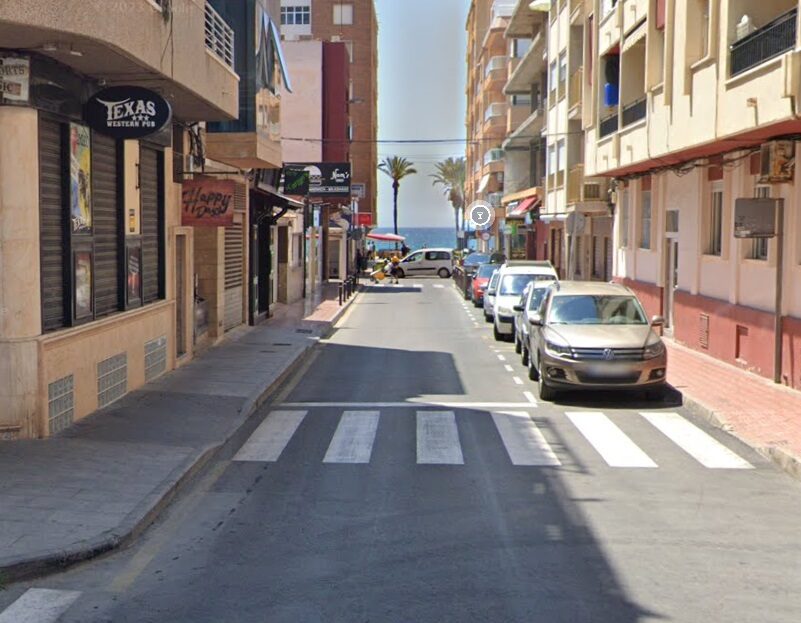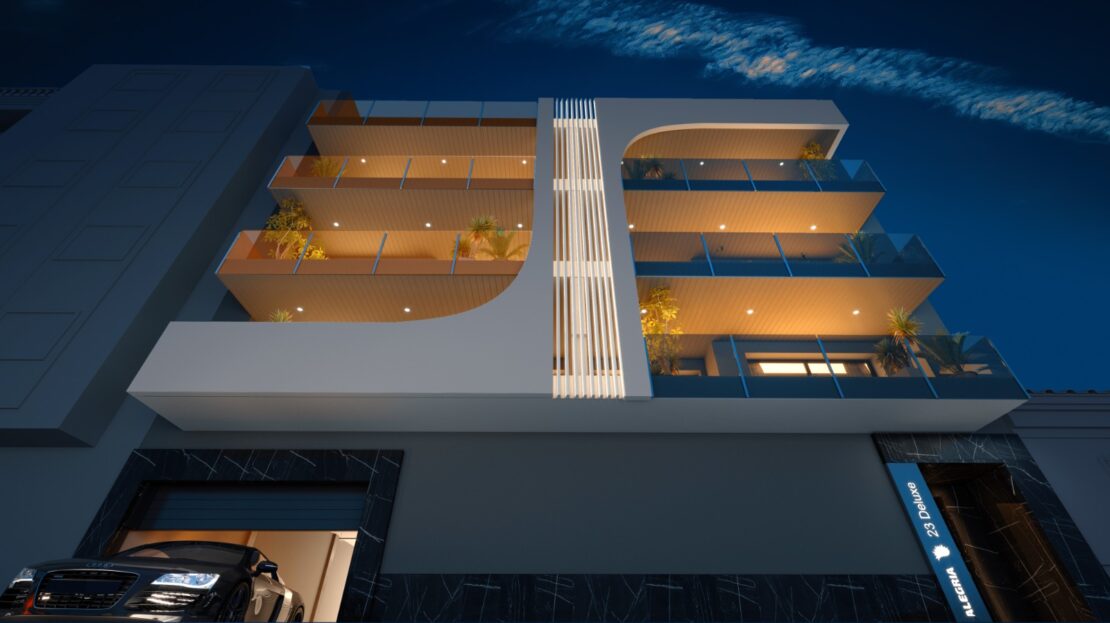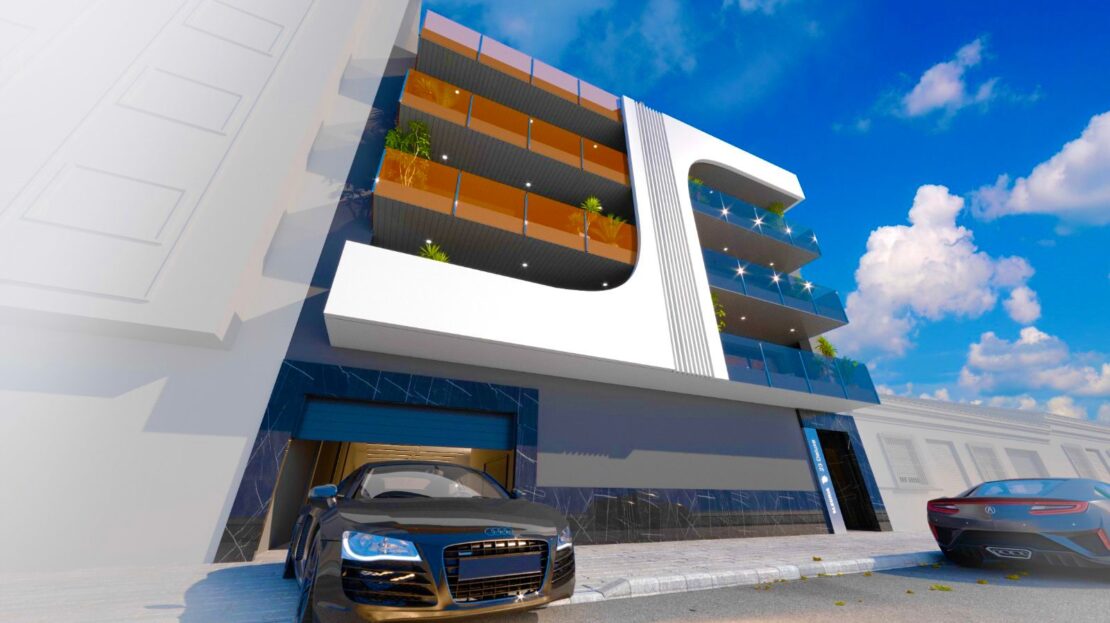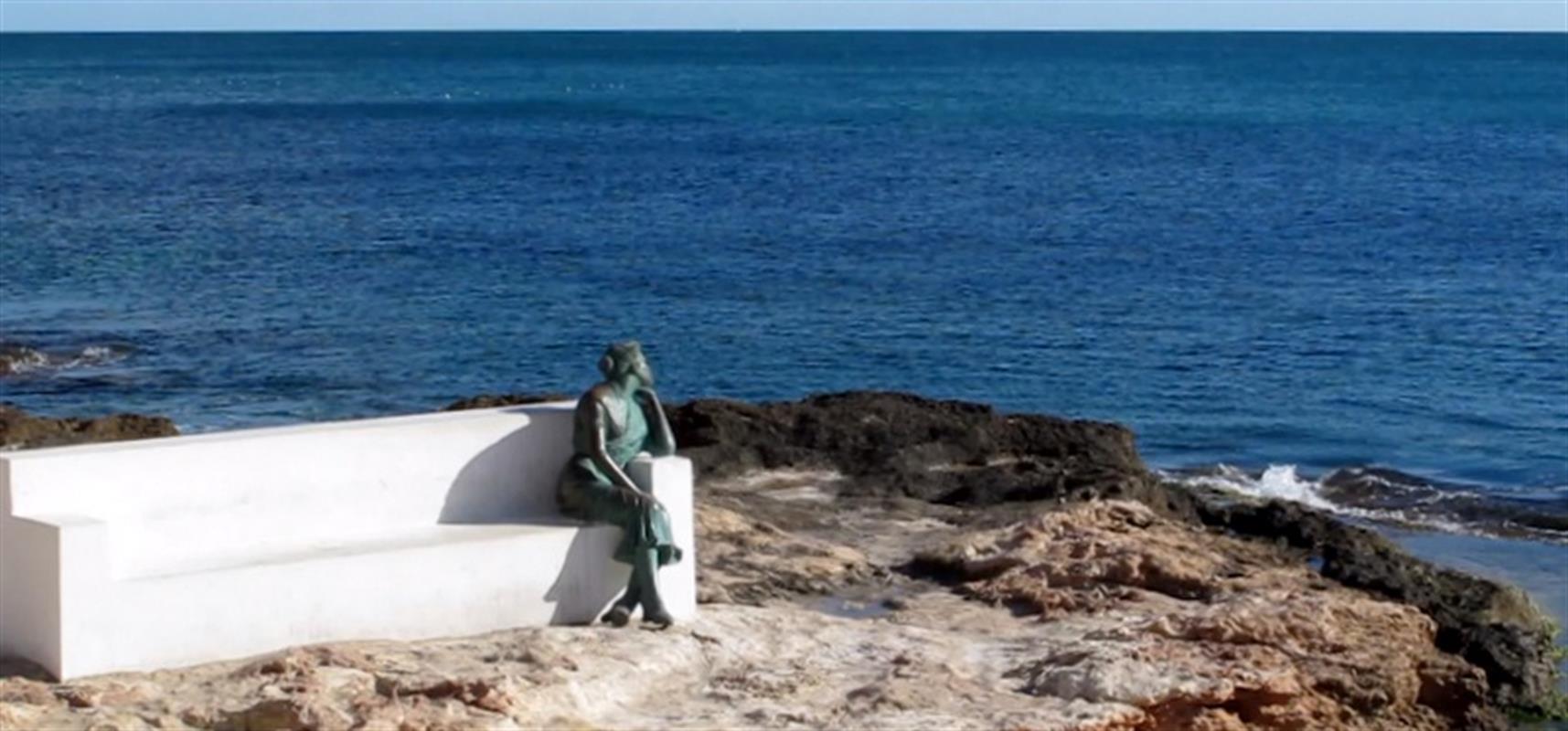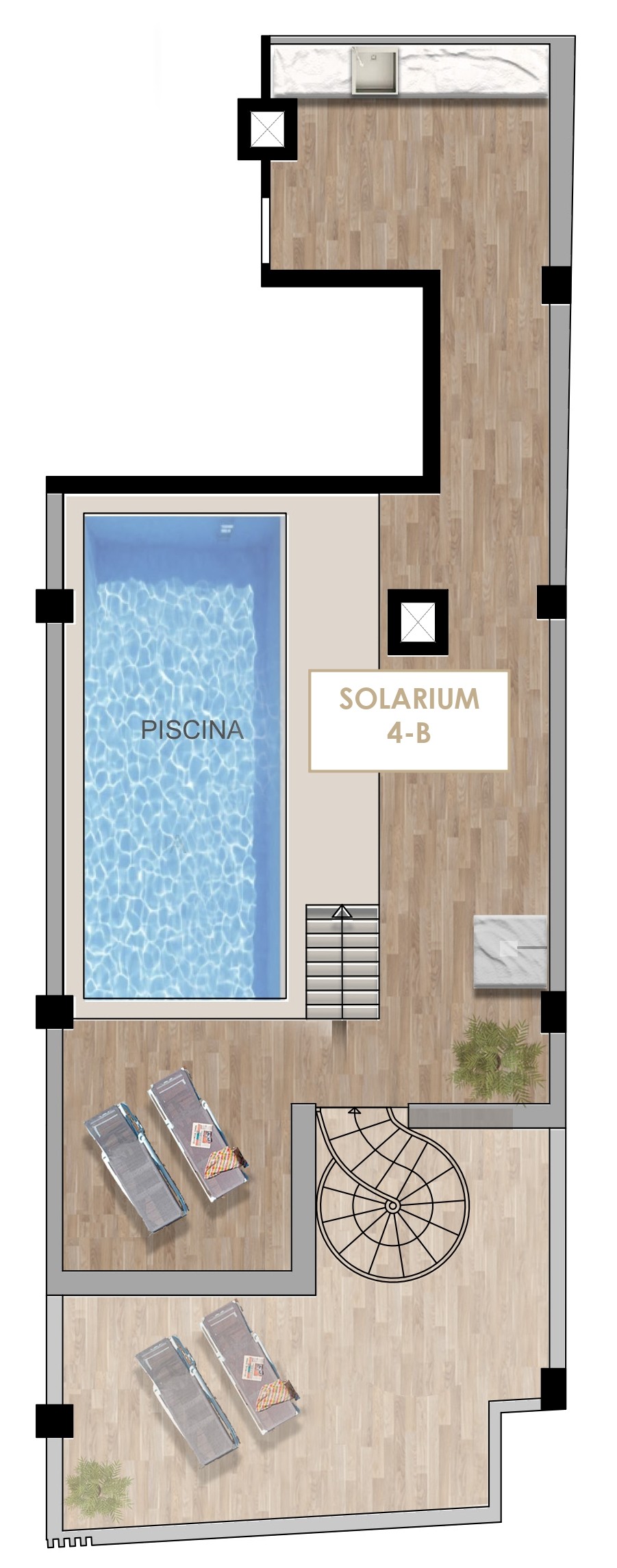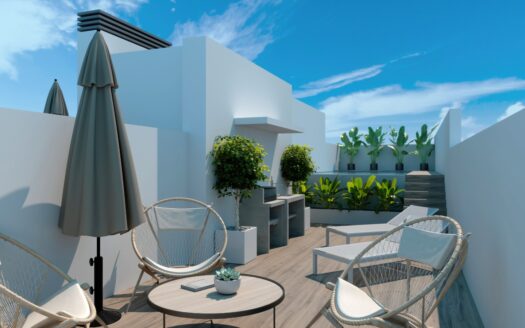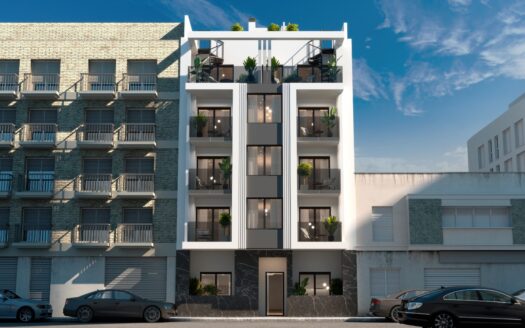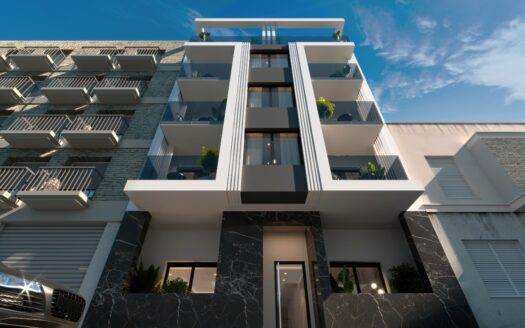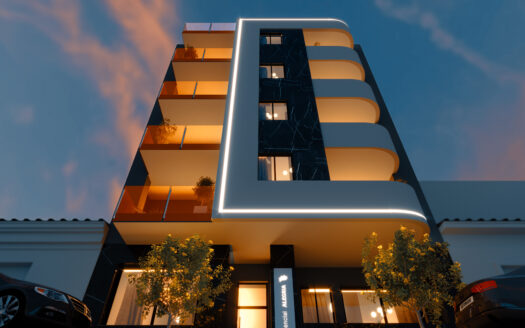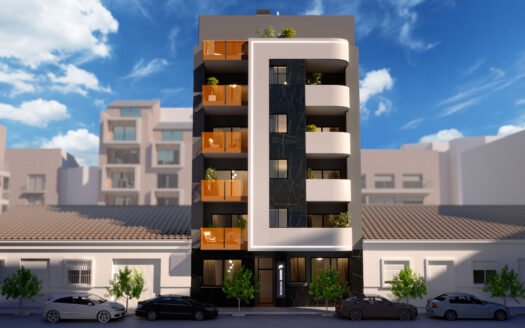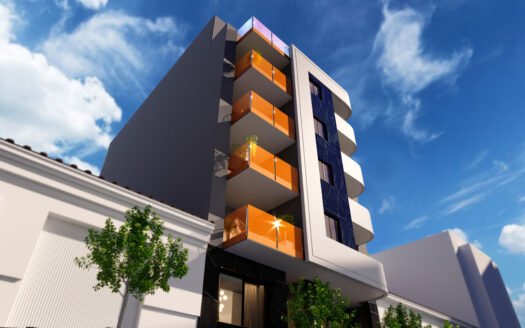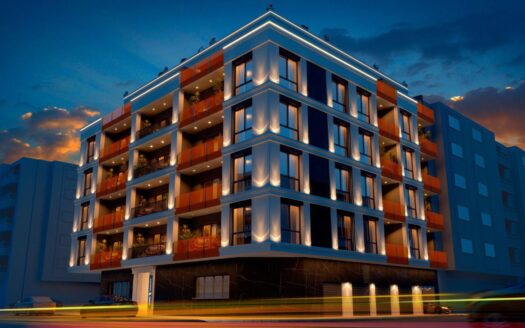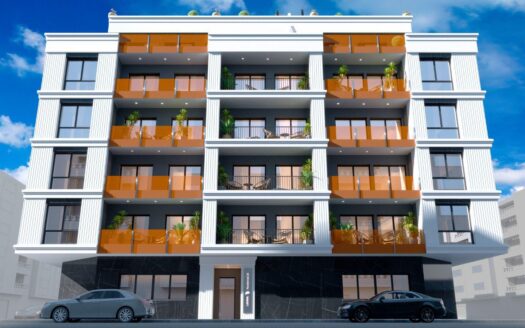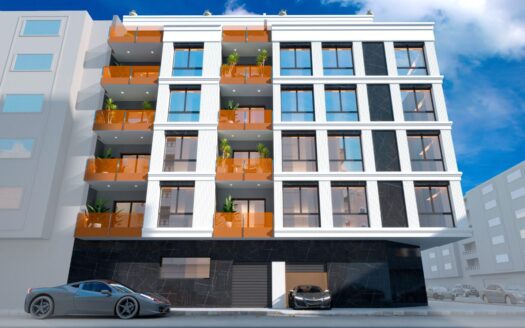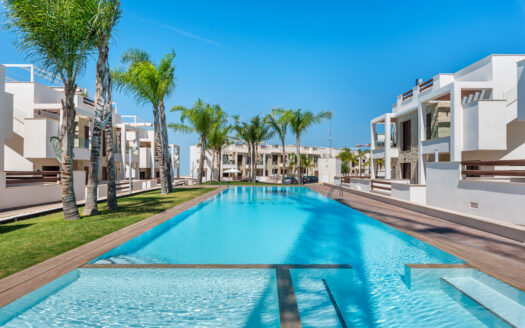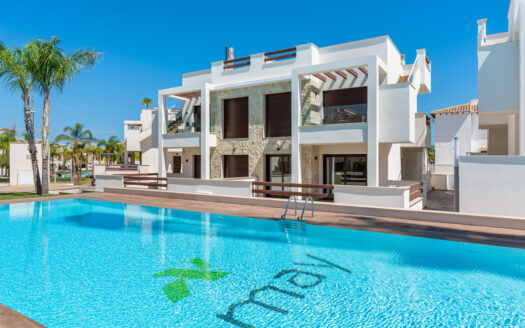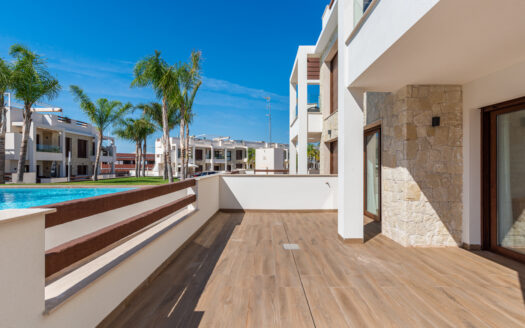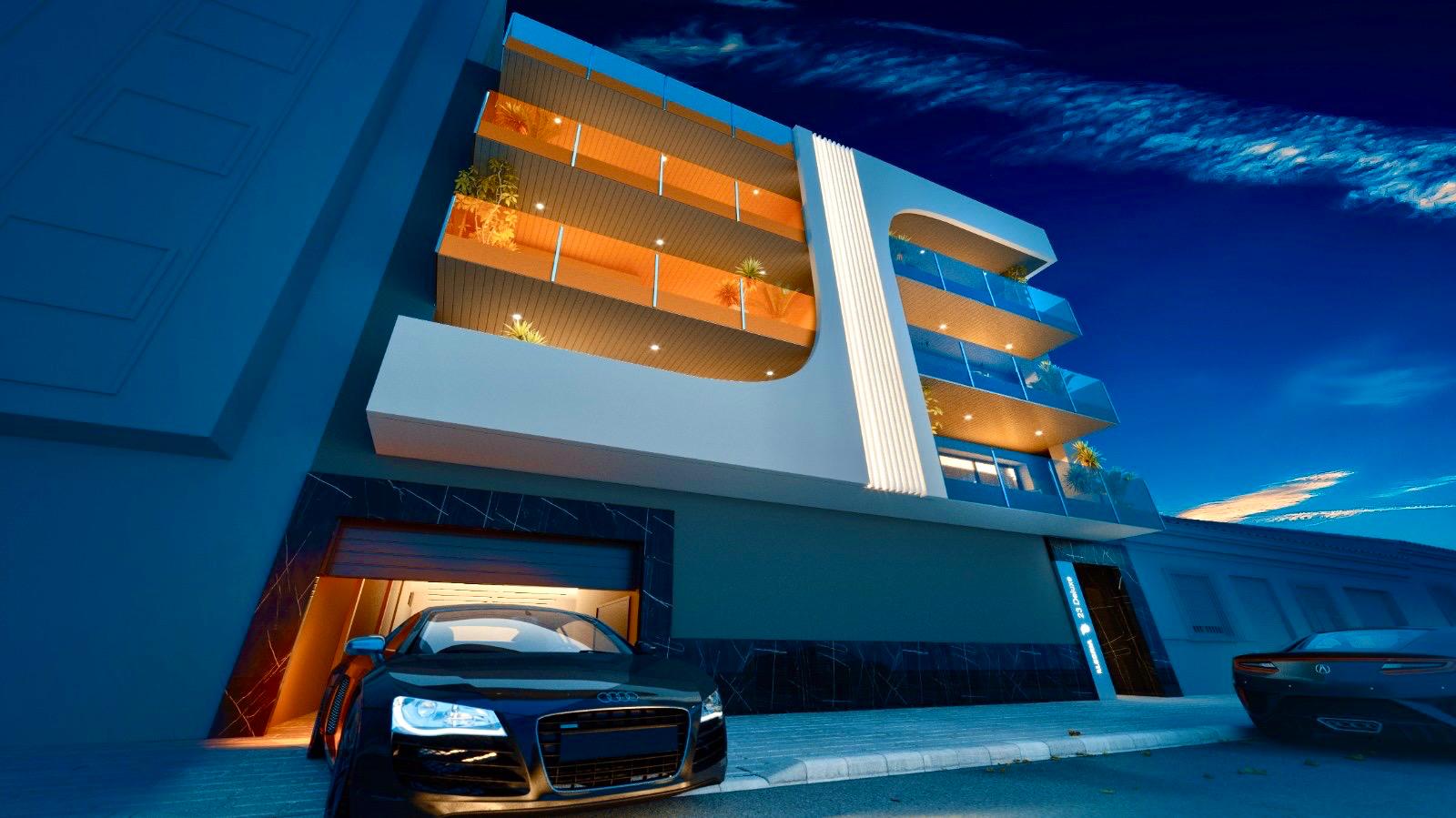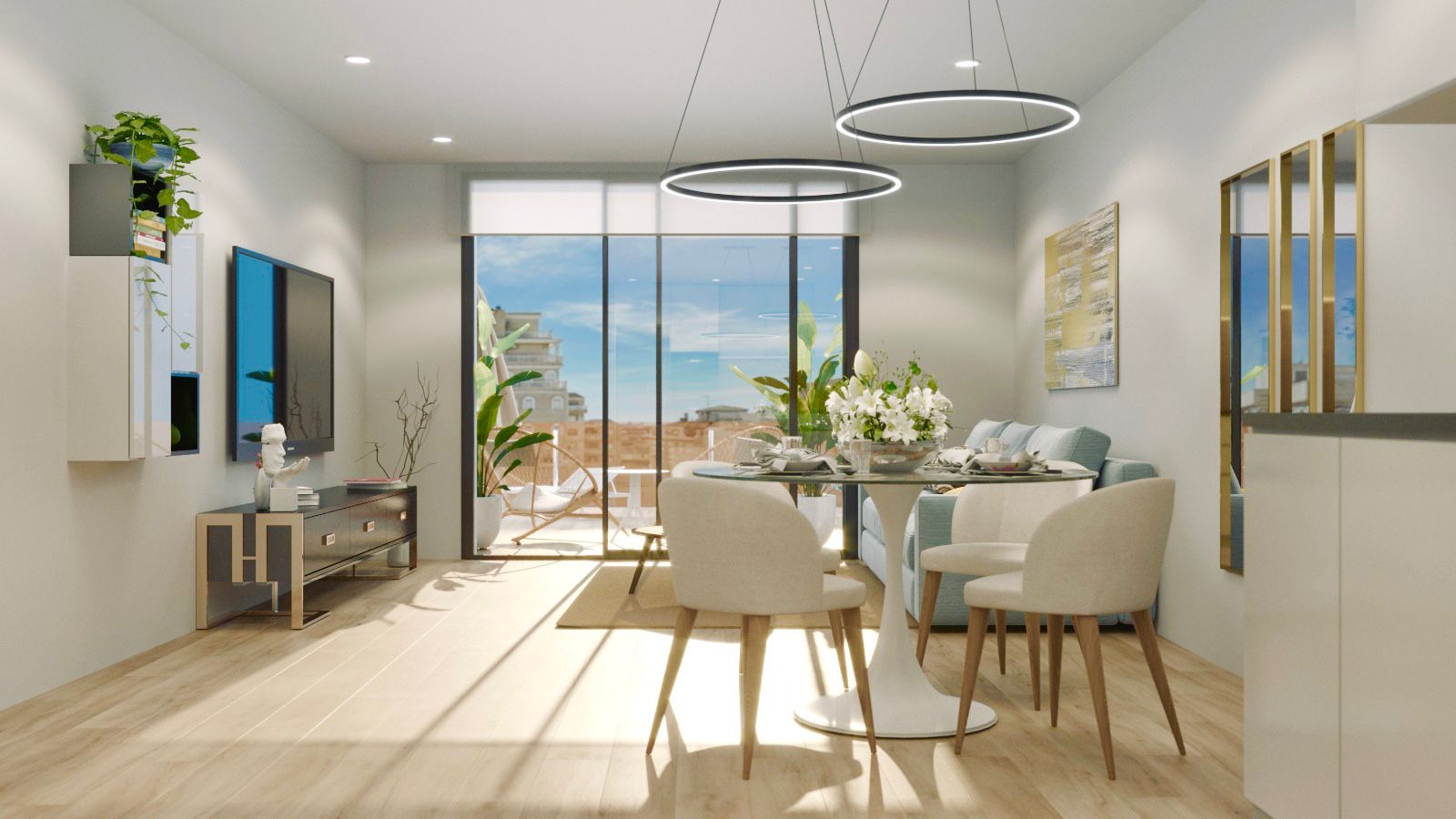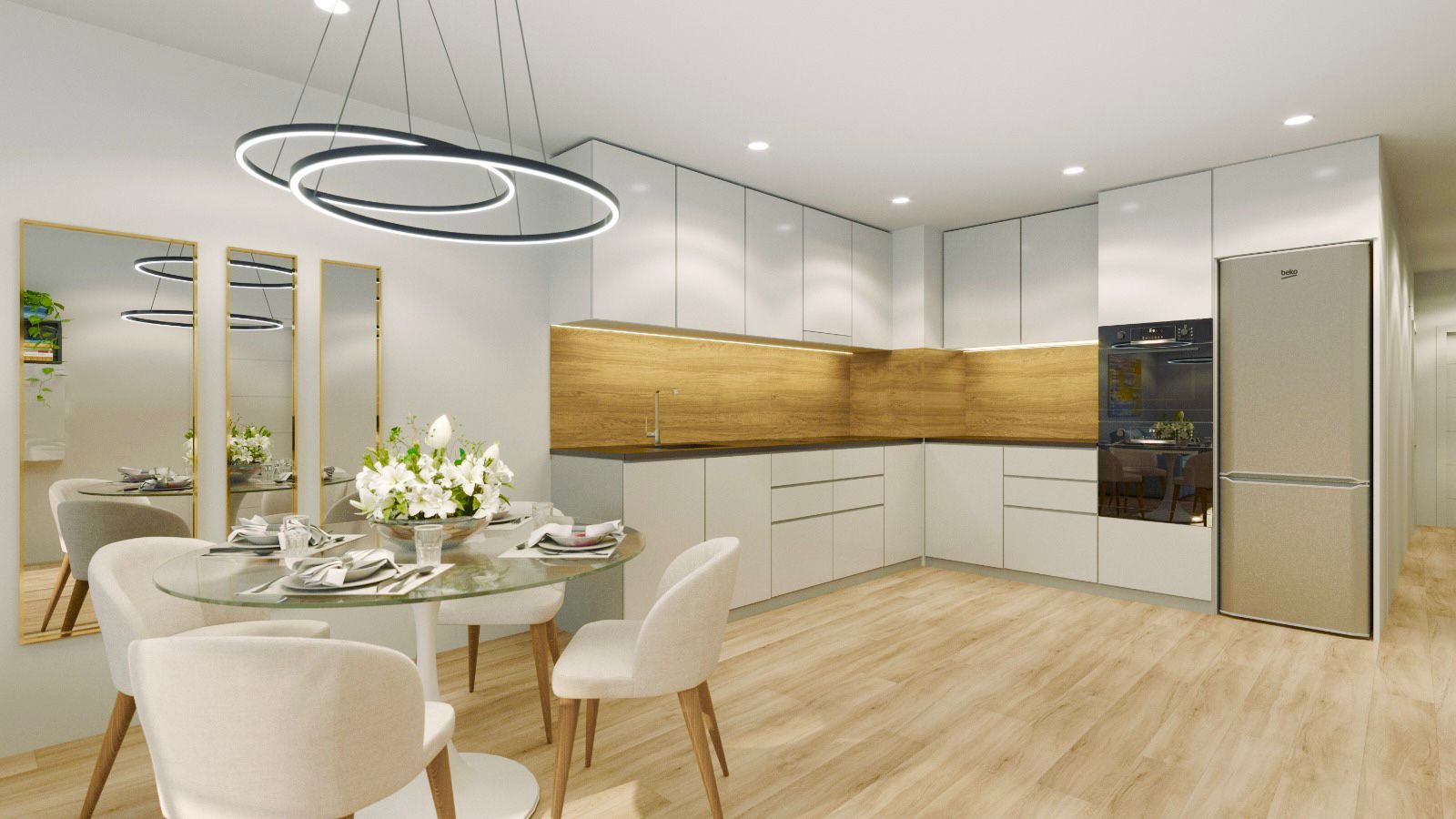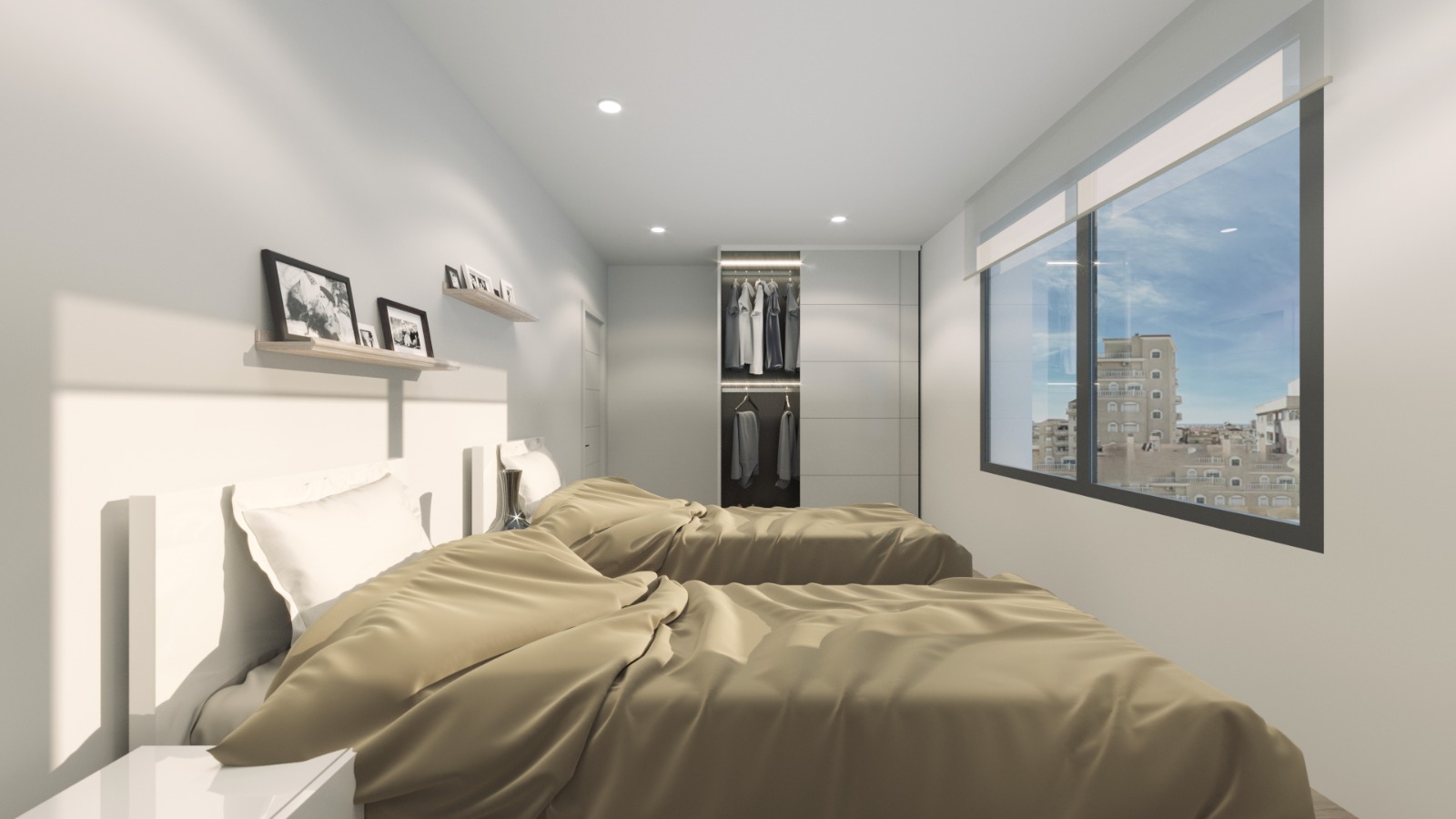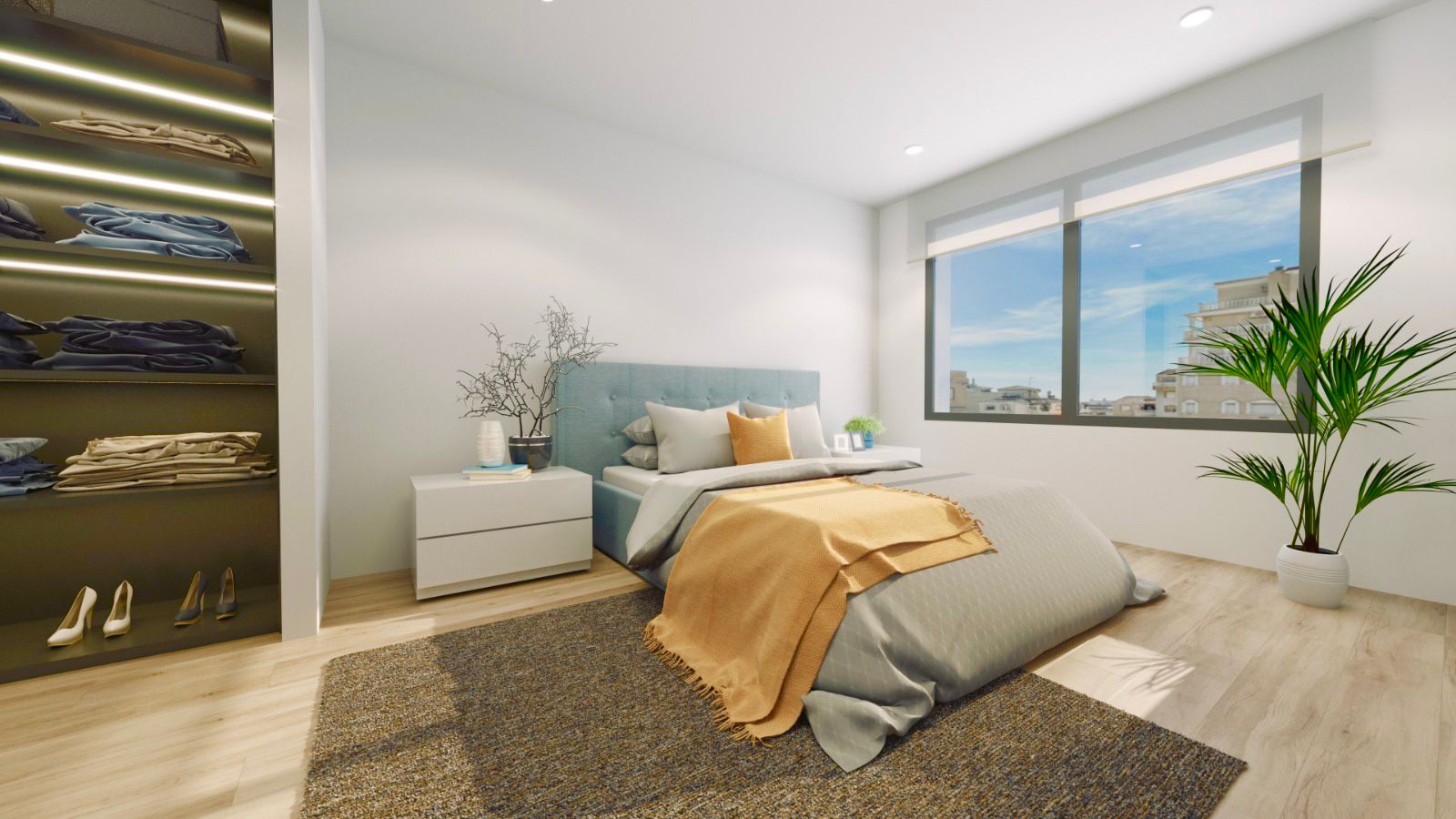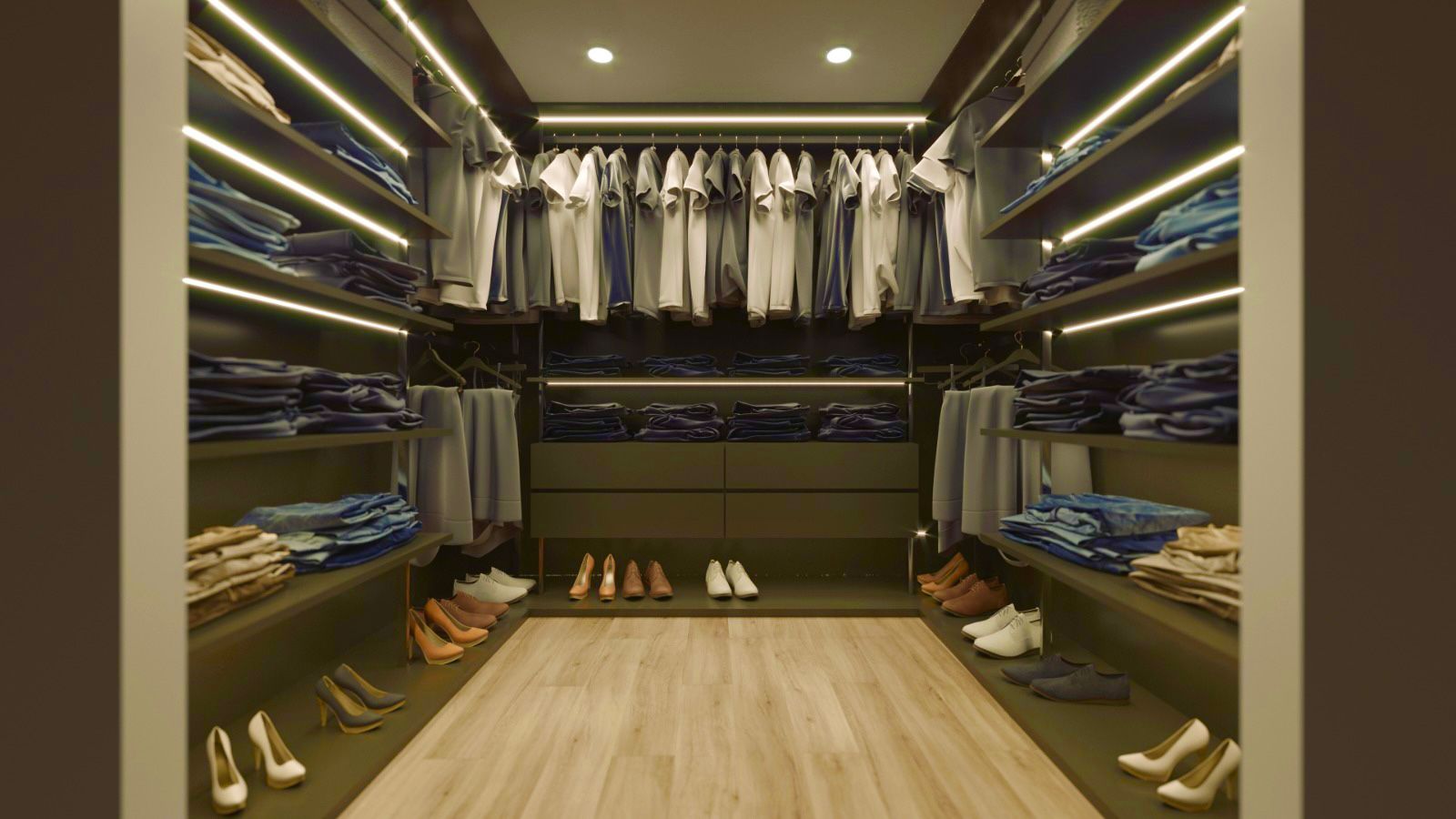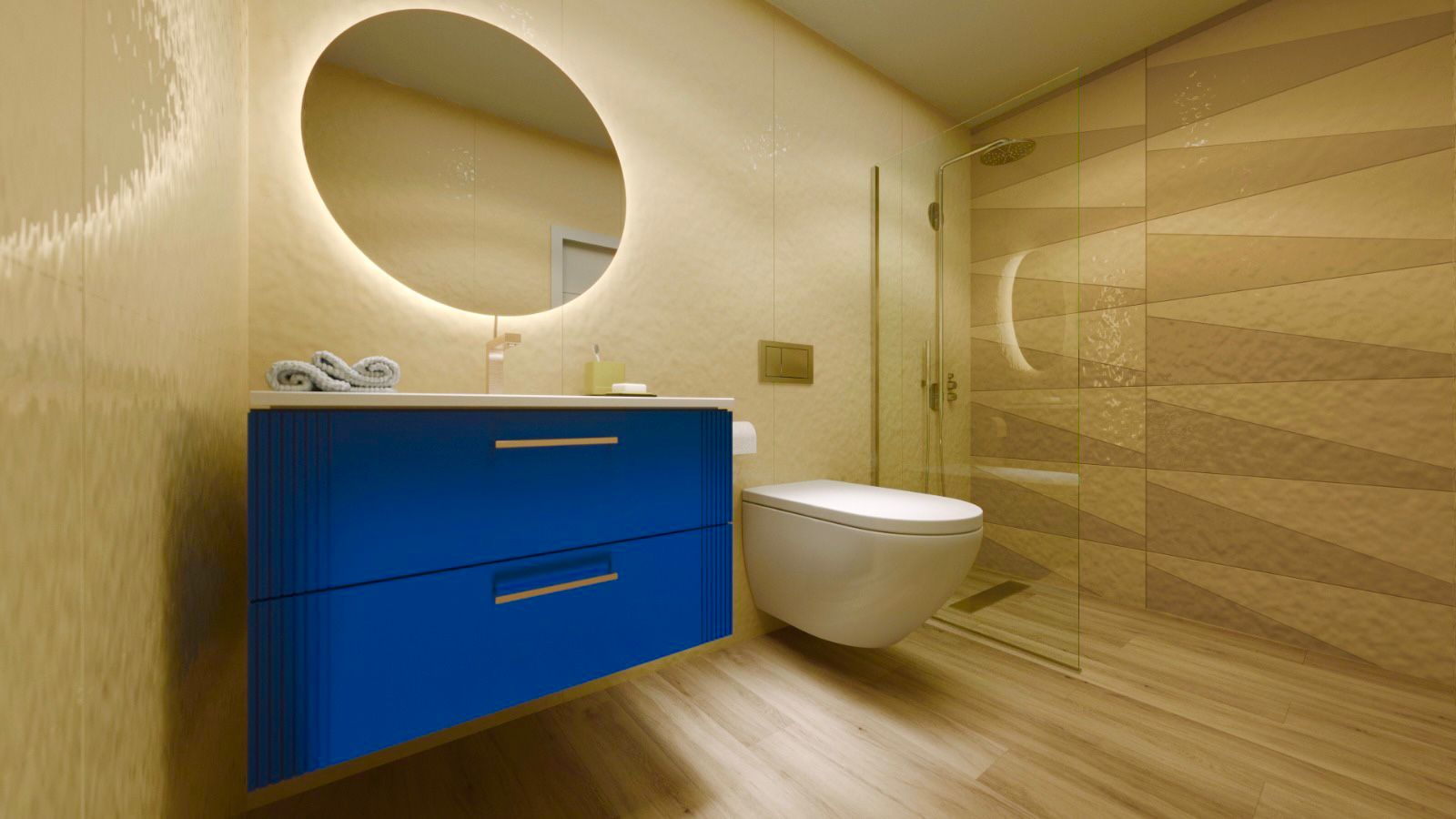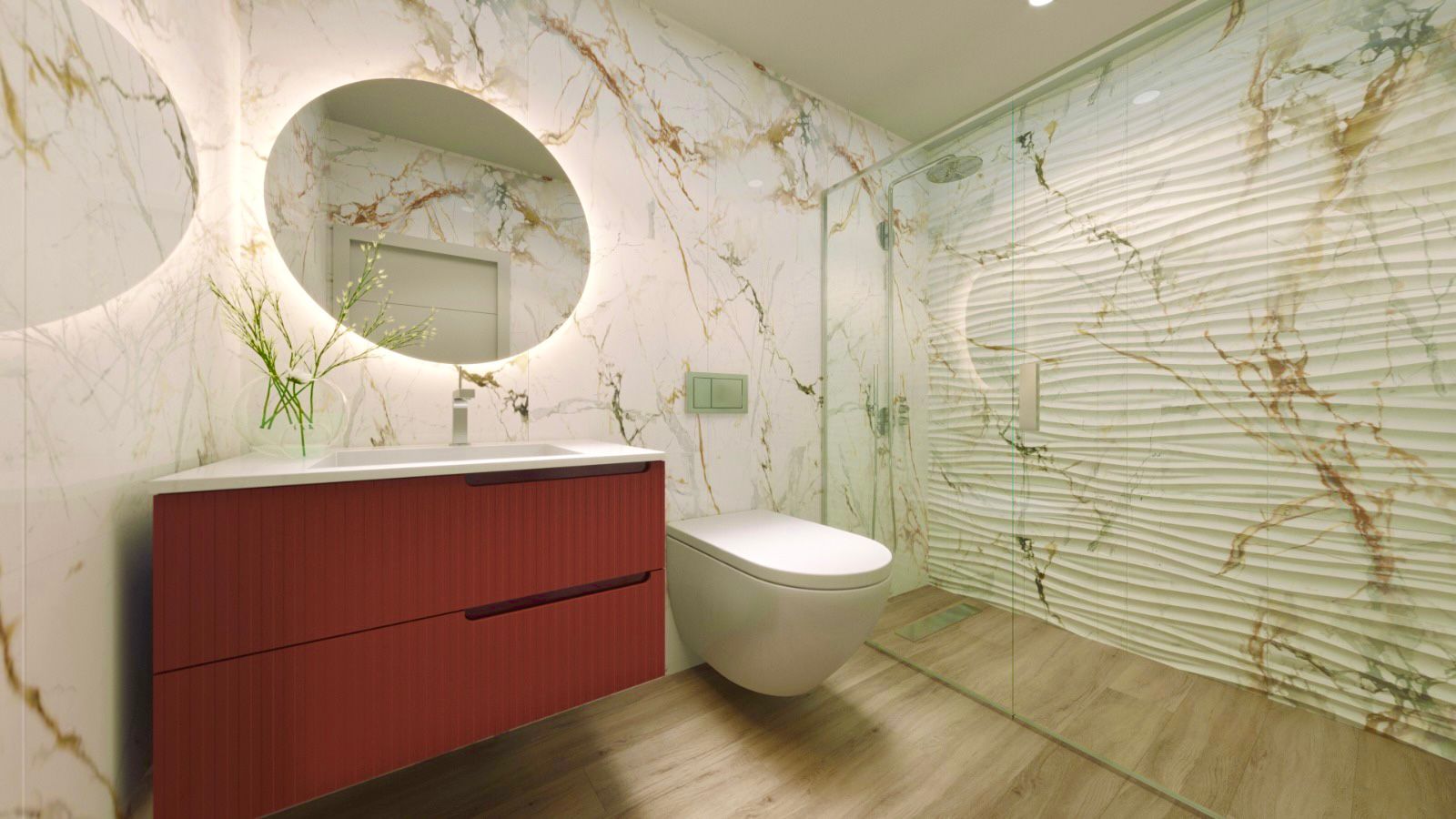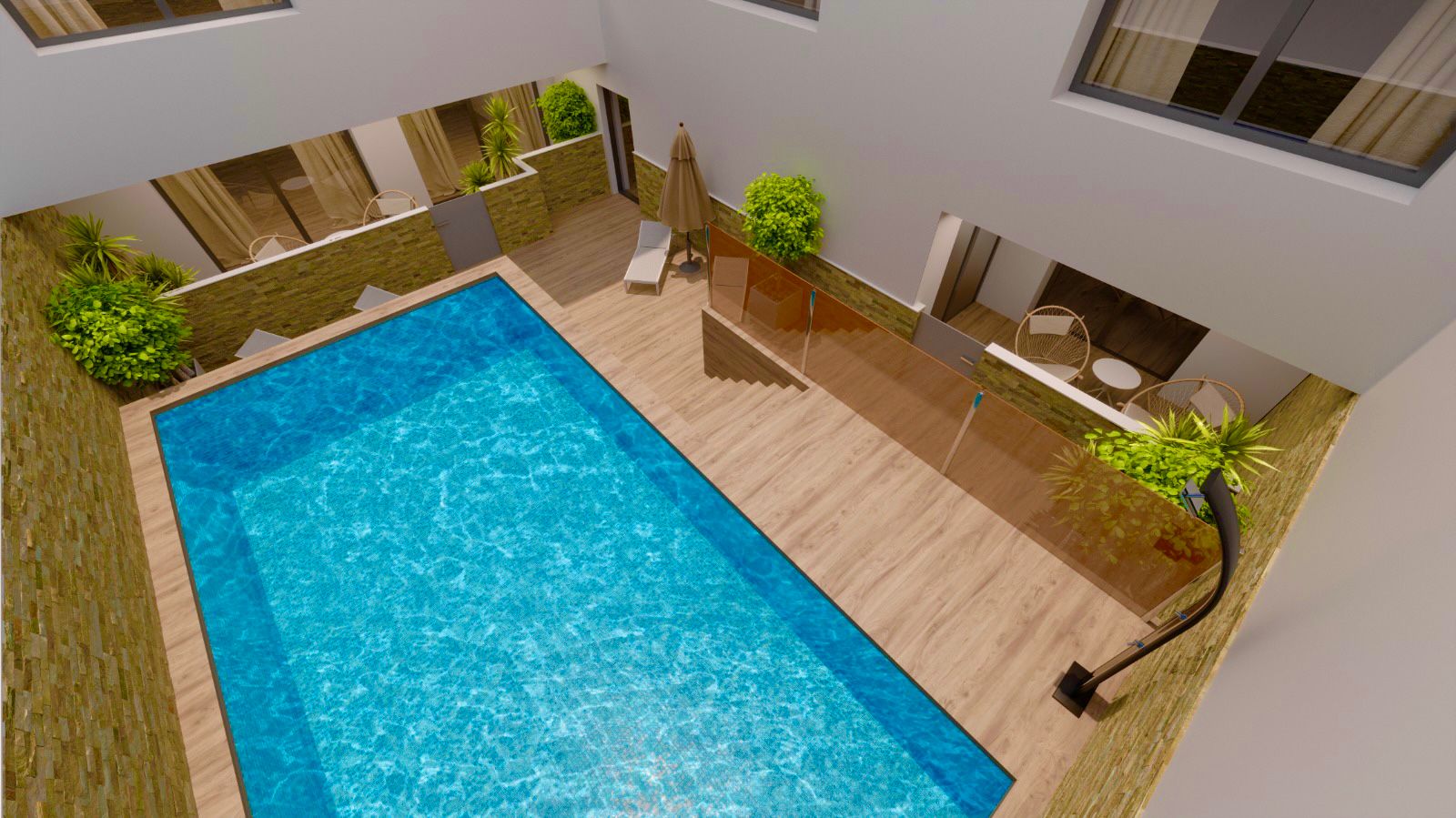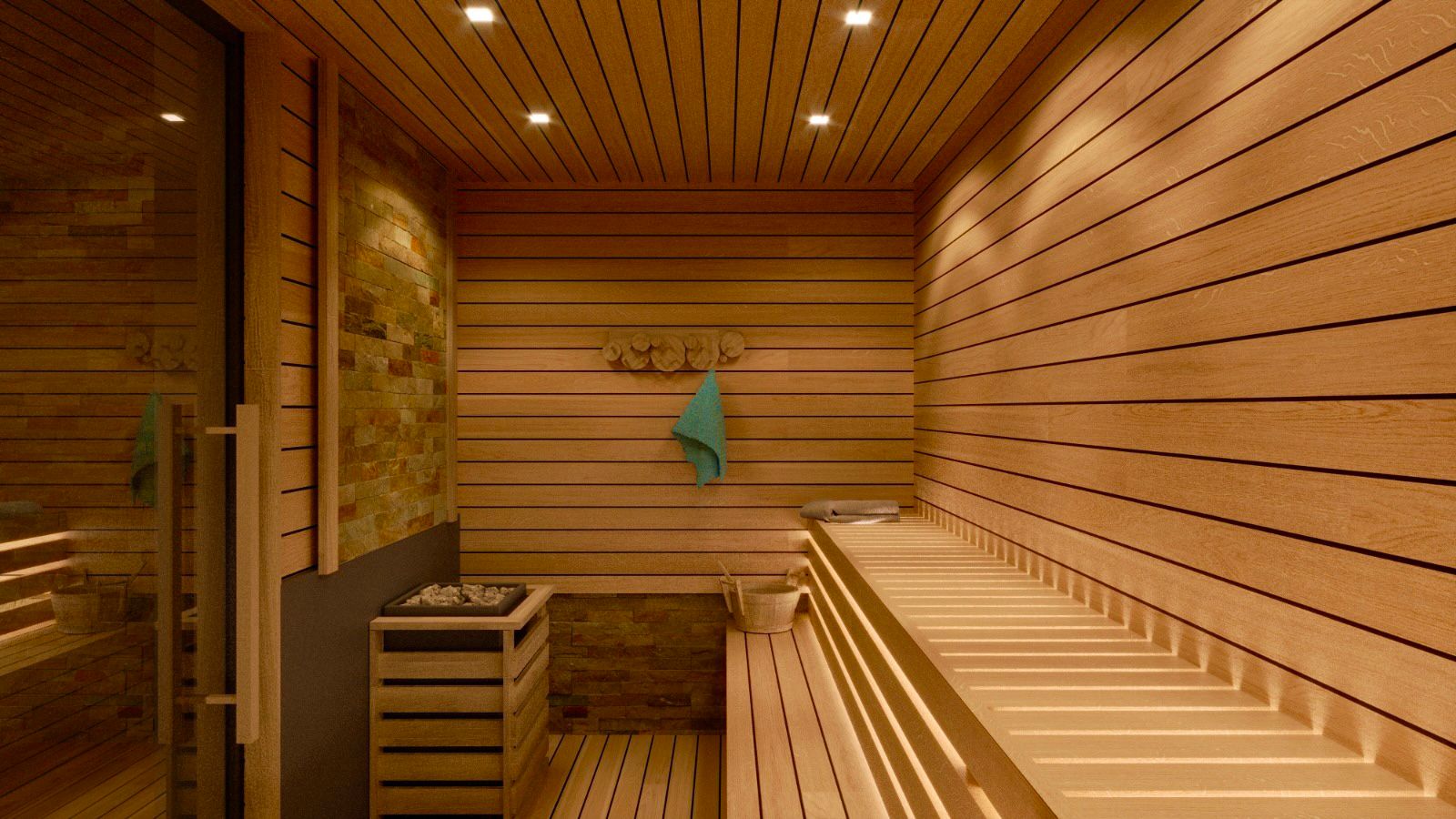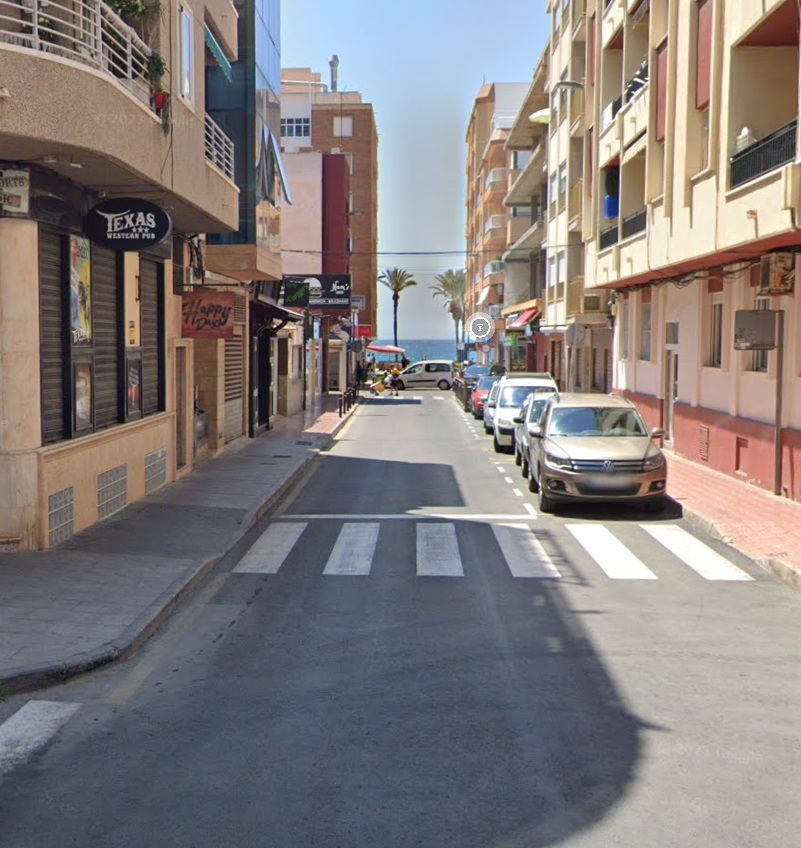Overview
- 3 Bedrooms
- 3 Bathrooms
- 126.00 m2
Property Description
A BRAND-NEW & modern complex in a sought-after area in the Beach / City resort of Torrevieja, a short walk to the “Famous Paseo Maritimo” with its pavement cafes, traditional tapas bars, fresh fish eateries and more.
THE LOCATION
📌 Playa del Cura West (nearest beach): 120m / 2 min walk
📌 Torrevieja Marina Market: 140m / 3 min walk
📌 Plaza de la Constitution: 700m / 11 min walk
📌 La Zenia Shopping Boulevard: 18 min drive
📌 Villamartin Golf Resort: 22 min
📌 La Marquesa Golf Resort: 26 min
📌 Alicante Airport: 45 min
THE APARTMENTS
The development consists of eight spacious luxury apartments two penthouse apartments with private swimming pools. There is also a Communal pool and a Finnish Sauna.
One penthouse and one of the apartments remain. Both have the following features:
✅ Open-plan kitchen-lounge area, access to balcony facing street
✅ Main en-suite with fitted wardrobes, access to same balcony
✅ Fully-fitted kitchen with BOSCH appliances installed
✅ Full MITSUBISHI air-con system fitted
✅ Underfloor heating in bathrooms
✅ Communal pool & rest areas
✅ Optional ground-floor garage for €25k or €32k
✅ The Atico penthouse enjoys a larger terrace on the main floor and stairs up to a spacious rooftop solarium with private pool & city views
| Size (m2) | Lounge | Bed 1 | Bed 2 | Bed 3 | Tce. 1 | Solarium | Price |
| Apt 2b | 38.0 | 11.0* | 12.1* | 14.2* | 12.4 | – | €365k |
| Atico 4b | – | – | – | – | – | – | SOLD |
Delivery date is expected to be Feb of 2026
All remaining units are detailed in the FLOORPLAN section below.
Data listed in the summary is for Apartment #1B
THE AREA
This place is BURSTING with culture, history and fascinating facts – all of which is available elsewhere online. Here’s a brief history of one of Costa Blanca’s main cities.
The Torrevieja Salt Flats date back to before the 13th century and were an ancient royal possession. Until 1802 in Torrevieja there was only an old guard tower (which gives the place its place name) and some salt workers’ houses.
But in 1803, King Charles IV decreed the transfer of the administration of the Reales Salinas from La Mata to the location of the current center of Torrevieja, and the construction of houses was authorized. In 1829, the town was completely destroyed by an earthquake and later rebuilt.
The production and trade of salt determined and organized life here, converted into a city in 1931 by privilege granted by Alfonso XIII. Craft production was limited in the 19th century to the manufacture of linen, hemp and cotton for popular consumption. Although the anchorage made it difficult to load the salt, the port was completed until 1954.
In the mid-19th century, salt extraction was mainly carried out by Swedish and Dutch ships. The national market for this product was mainly Galician and, to a lesser extent, Valencian. The importance of the foreign market for this product has been maintained during the 20th century: a quarter of the salt produced is consumed in Spain and the rest is exported, its salt mines being the most important in Europe.
Modern-day Torrevieja has street festivals almost every month, hosts international sporting events and celebrates local cuisine with Tapas Trails every few months.

Your information
Other Agents


